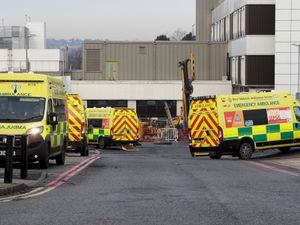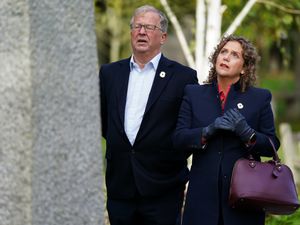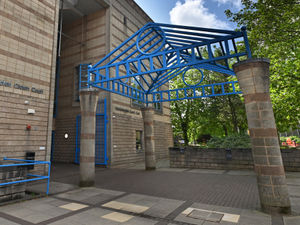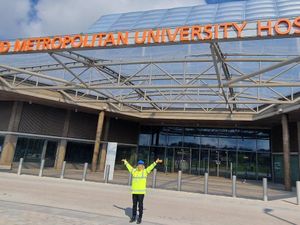More than 2,000 hours lost to ambulance handover delays at Black Country hospitals in December
More than 2,000 hours were lost by ambulance crews waiting more than half an hour to hand over patients at Black Country hospitals last month, new figures reveal.
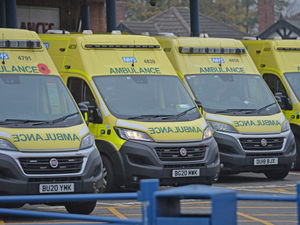
It was a rise of almost 30 per cent compared to November, with ambulance bosses saying the delays are causing "significant serious patient safety concerns".
West Midlands Ambulance Service (WMAS) is to discuss the matter when its board of directors meet on Wednesday.
The issue has been exacerbated by a number of factors, including Covid restrictions limiting capacity in hospitals, while a delay in getting the necessary support or accommodation put in place for some patients leaving hospital has led to them taking up beds when they no longer clinically need to be there.
Figures in a new report to the trust's board show ambulance crews lost 911 hours due to handover delays of more than 30 minutes at Wolverhampton's New Cross Hospital in December – up from 698 hours in November.
There were 682 hours lost at Russells Hall Hospital in Dudley, compared to 529 in the previous month.
The figure rose to 421 hours at Sandwell General Hospital, from 322 in November and there was a slight fall to 41 hours at Walsall Manor Hospital for December, down from 43 hours the previous month.
Across the total area covered by WMAS, its crews lost more than 12,600 hours due to handover delays at hospitals.
In his report to the board, the trust's executive nursing director Mark Docherty says: "The issue of patient handover delays continues to deteriorate and the impact of this means we are keeping patients waiting for very long periods for an ambulance response.
"This is causing significant serious patient safety concerns.
"The lost hours for the year to date peaked in October 2021 when there were in excess of 15,000 lost hours due to handover delays over 30 minutes; this is the highest number of lost hours ever experienced by WMAS."
Mr Docherty's paper to the board also includes comments from the Royal College of Emergency Medicine, which outlines how delays are leading to significant harm for patients.
The comments came after an Emergency Medical Journal article that found five hour plus waits increase the risk of death for patients.
Dr Katherine Henderson, President of the Royal College Emergency Medicine, said: “Performance in emergency departments has been in decline for many years now, while waiting times have risen significantly; the risk to patient safety is a growing problem. It is unacceptable and deeply concerning."


